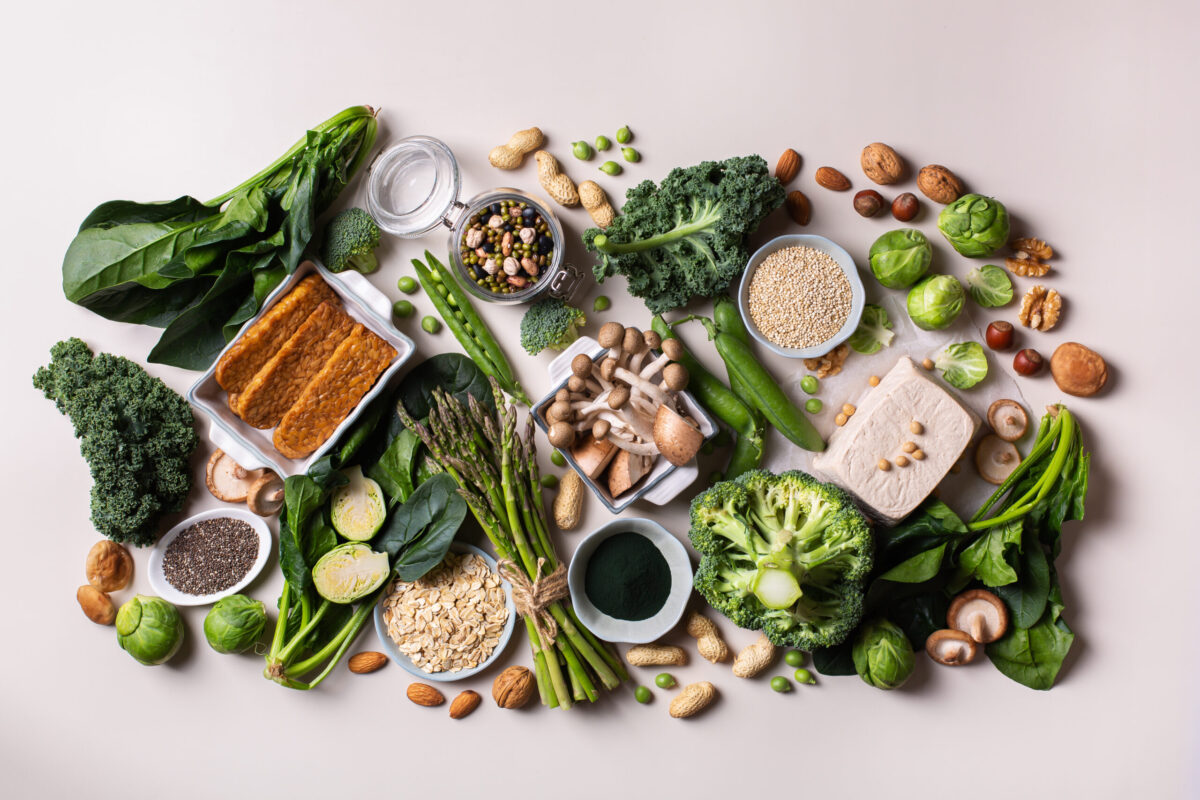Plant-based eating has become increasingly popular in recent years. And eating more plants is often the go-to nutritional advice for some health conditions like heart disease and diabetes.
“Registered dietitians have long been promoting the benefits of plant-based eating,” says Shaina Gross, a registered dietitian with BlueCross BlueShield of Tennessee. “You might give it a try. Or at least be mindful of meat intake and portion sizes of animal proteins.”
Here’s what you need to know about the benefits of eating more plants in your diet.
How a plant-based diet can improve your health
Shaina Gross: Research tells us that plant-based diets can do wonders for your health. They’re a low-risk intervention that can help you:
1. Prevent diabetes
Eating more plants may improve your body’s sensitivity to insulin and help decrease insulin resistance, which is often a precursor to type 2 diabetes.
One caveat: don’t assume that all plant-based foods are better for you than animal-derived foods. Watch out for highly processed plant-based foods that contain a lot of refined sugars and other less-than-healthy ingredients. If you swap out your animal-derived foods for those highly processed plant-based foods, you won’t experience the positive health benefits you might be hoping for.
2. Lower high blood pressure
You could lower your blood pressure, which can help your overall cardiovascular health, by eating more plant-based foods. If you can maintain a healthy blood pressure, you may be less likely to develop atherosclerosis, which is a hardening of the arteries, or experience a heart attack or stroke.
3. Lower cholesterol
People with high cholesterol often develop fatty deposits in their blood vessels that can reduce the normal flow of blood throughout their bodies and boost their risk of having a heart attack or stroke. Research suggests that substituting red meat with high-quality plant-based protein can improve blood cholesterol levels. This may also reduce your risk of cardiovascular disease.
4. Support your immune system
Plants provide a myriad of vitamins, minerals, phytochemicals and antioxidants to keep your cells healthy—and help you fight off infection.
5. Lose weight
Cutting back on higher-calorie animal-based foods and eating more lower-calorie plant-based foods instead can be a winning strategy if you’re looking to lose some weight. Losing weight can also reduce your risk of developing other health conditions, like high blood pressure and diabetes.
6. Save Money
Animal proteins are often the most expensive foods that we buy at the grocery store. Swapping out some of those animal protein sources with minimally processed plant-based protein sources can reduce your grocery bill.
Tip: try incorporating a plant-based protein source into a meal that you know you like. For example, use lentils, beans or tofu instead of meat in your favorite traditional recipe.
Is a plant-based diet the same as vegan?
Shaina Gross: People often confuse a plant-based diet with a vegan diet. They have a lot in common, primarily an emphasis on consuming fruits, vegetables, legumes and whole grains. Where they differ is in the approach to animal products. A vegan diet excludes meat, poultry, eggs, dairy and seafood. A plant-based diet minimizes, but does not exclude animal-based foods.
For some people, a vegan diet might not be the right choice. For example, weightlifters who need a lot of protein might find it hard to get enough protein with a strictly vegan diet. So they might choose a plant-based diet instead.
Before significantly changing up your diet, you should be aware of what your body may miss from the absence of animal proteins. For example, you’ll want to be aware that Vitamin B12 only occurs naturally in animal products, so if you give them up altogether, you may need to talk to your doctor about a supplement. Similarly, iron and calcium from plant sources aren’t as easily absorbed, so you’ll need to be intentional about your intake of these key nutrients.
“The benefits of consuming more plant-based foods is clear, but you should consult with your doctor or a registered dietitian before making major dietary changes,” says Shaina.
Shaina Gross on how to pack a healthy lunch.
Get more information about specific health terms, topics and conditions to better manage your health on bcbst.com. BlueCross BlueShield of Tennessee members can access wellness-related discounts on fitness products, gym memberships, healthy eating and more through Blue365®. BCBST members can also find tools and resources to help improve health and well-being by logging into BlueAccess and going to the Managing Your Health tab.


